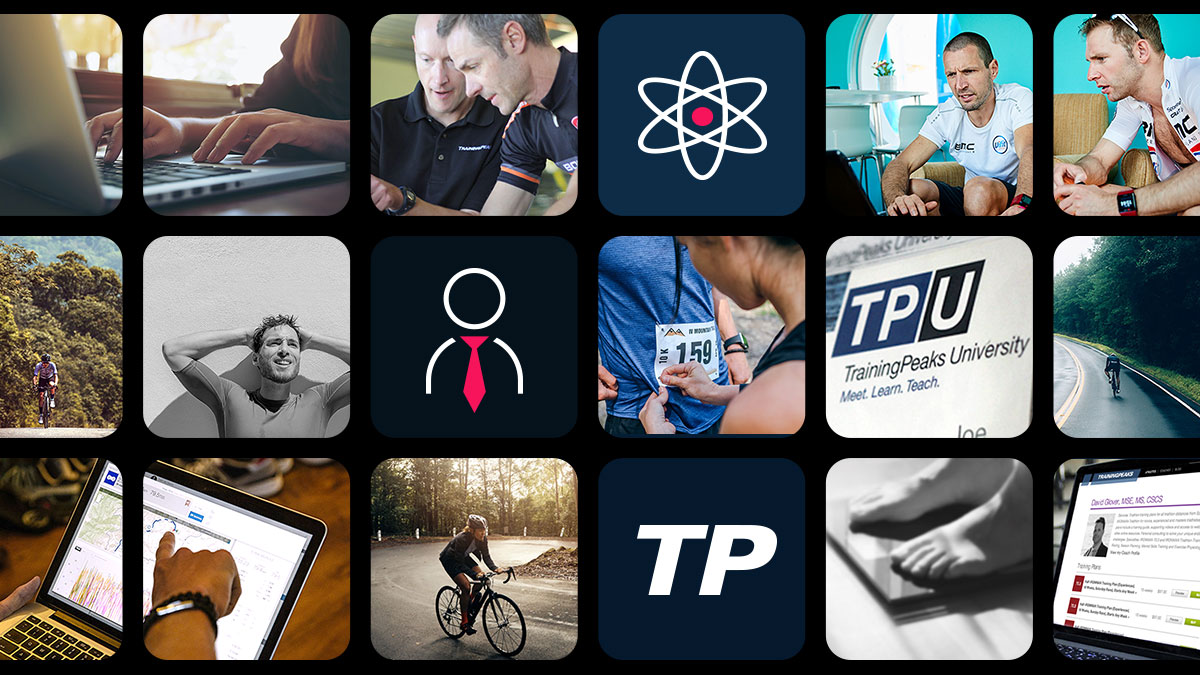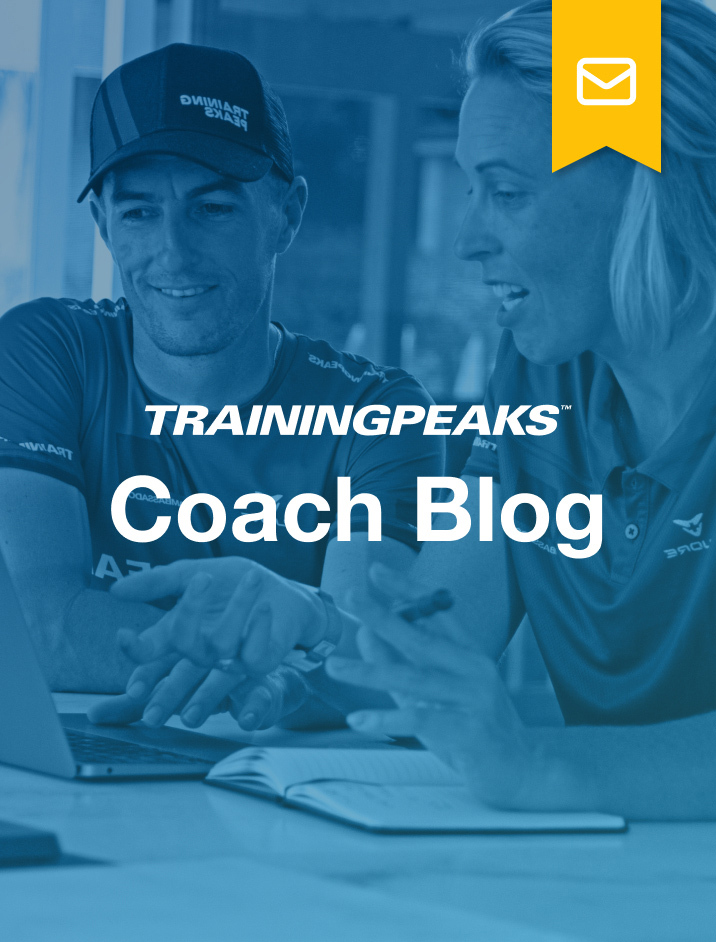Being a coach isn’t an easy job. We often work with highly-motivated people living complex lives. It’s our job to help them achieve their potential and actualize their dreams. While planning and prescribing training plans is a large part of what endurance coaches do, ultimately, we are influencing the behavior of athletes to help enhance performance. However, like many relationships, things can sometimes go wrong. A few poorly-chosen words, poor communication, or lack of understanding of the needs of the other person can lead to acrimony, or worse.
“Ideal racing weight” is an important subject because the mass of an athlete affects performance. While it can be a sensitive topic for a coach to address, it’s not one that should be avoided. To deal with it appropriately, knowledge surrounding athlete weight should not be at odds with the facts and it must never be dealt with as a simple physical metric. Rather, the beliefs, desires, intentions, and perspectives of others may be different to our own and must be taken into account when discussing the subject.
This article explores a real-world scenario of the breakdown of a coach-athlete relationship, in which the coach got the message surrounding athlete weight badly wrong. Fortunately, there’s a happy ending in which the athlete asks for help. That’s when triathlon legend Chrissie Wellington and I got involved.
The Athlete’s Story
It was only a few weeks out from my A-race, the IRONMAN 70.3 World Championships, and I was attending a training camp with my coach. My running off the bike had been a concern for a while, but I was really taken aback when my coach said the limiting factor was that I was “carrying too much weight from the waist down” and I needed to be much slimmer.
This required that I take strict control of my diet and that my body needed to be “shocked” in order to lose weight. Intuitively, this felt wrong. I am a 5’ 8”, 61 kg female triathlete who had never considered myself overweight until that point. I was training 20-hours per week and didn’t want to restrict fuel to lose weight at this stage of the season. While I may not be the slimmest triathlete, it has always been really important to me to try to maintain a healthy relationship with food, especially when there is so much pressure to be lean. I always strive to find balance in life and feel it is important to be happy with myself.
After two uncomfortable days of me agonizing over whether any truth lie in the comments, the subject was brought up again. Prior to this, I held my coach in high regard, respected her advice and her successes as an athlete, too. However, the experience was very upsetting, and it undermined my confidence and had me questioning my body image.
Thankfully, I have a supportive family and friends who are helping me rationalize what I was told, specifically that I need to lose weight in order to be successful. It really angered me how it was brought up and concerns me that other, potentially more vulnerable, young women are made to feel the way that I have felt. I feel that being strong is more important than being skinny, and am determined to prove that a strong body built by hard work and dedication beats a weak but lean body created from crash dieting.
Chrissie’s Perspective
As someone who has always had a disordered relationship with food, I am acutely aware of, and very sensitive to, the long-term damage that seemingly innocuous throw-away comments about “race weight” might have. While I have only heard the athlete’s side of the story (and her coach may well have a different recollection of events) there are several reasons to question the validity of the advice that the athlete was given.
First, her coach is equating leanness and lightness with speed and, therefore, improved performance. This is an overly-simplistic perspective. Being light doesn’t necessarily make you fast. Successful IRONMAN athletes have a range of different body types. Take Mirinda Carfrae and myself—two successful athletes with two totally different builds. And, Meredith Kessler, with multiple IRONMAN championships and over 60 IRONMAN finishes, is strong, powerful, and definitely isn’t stick thin. In fact, when I lost too much weight, my swimming, especially, suffered. To be a good triathlete we need to be healthy, robust, strong, and powerful.
Second, if someone does want to lose weight, crash dieting is never the answer. Restricting food intake and trying to reduce body mass over a short period of time can severely impact an athlete’s performance, physically and emotionally.
Furthermore, it is narrow-minded to focus on speed and neglect the link between weight, diet, and overall health. An athlete’s health always comes first—emotional health, hormonal health, bone health—and diet plays such a major part in that. If we aren’t holistically healthy how can we sustain performance and be our best selves over the long term?
Proffering such advice could also fuel or catalyze an unhealthy relationship with food. For the athlete to have a balanced and healthy perspective on food, weight and body image is important and something that should be nurtured, encouraged and celebrated. To this point, it is vital that a coach understands the athlete’s perspective on and behaviors related to diet and fueling, not just their sporting history, training program, and goals. A good coach will invest time in building a clear picture of the athlete’s overall health, injury history, diet, emotional state, personality traits and character, family situation, work-life, and more. Then, they should tailor the coaching accordingly. The coaching should be geared toward what is best for that individual in the long term (and in life, not just triathlon).
If, as the athlete suggests, the relationship with her coach has been irreparably undermined by this situation, I would urge her not to blame herself. I parted ways with two coaches, knowing that sometimes two parties don’t see eye to eye, and their philosophies or approaches simply aren’t compatible with the athlete’s goals, personality, or views. It is a sign of strength to realize that a coach is not right for you, revisit what you do need and what is important to you, and look elsewhere for someone who has your holistic welfare at heart.
Andy’s Perspective
Athletes are often drawn to highly-confident coaches, believing this confidence has some basis in reality. This confidence often comes from their stature as a coach, the success of other athletes they have coached, their level of qualification, or previous success as an elite athlete. Of course, such things can contribute to effective coaching. However, the knowledge and expertise required to help others achieve optimal performance takes years to develop and requires an inquisitive mind. It also requires understanding how different athletes think and behave.
Motivated athletes, who are committed to pushing the boundaries of what is humanly possible, will often do anything they believe it takes to get there; behavior is not always logical or rational. Therefore, coaches must be aware of that and realize that what they say and how they say it has consequences, sometimes unintended ones that can have lasting damage.
In this case, the credibility of the coach began to untangle because of their erroneous belief that losing body mass was in the best interest of the athlete. Fortunately, the athlete’s beliefs and self-image didn’t match what her coach said, and she asked for help. Of course, there is an ethical dilemma in intervening with an athlete being coached by another coach. However, athlete welfare always comes first. The athlete’s confidence had been clearly undermined, and she was questioning her own body image. As Chrissie and I know, the consequences of doing so can become very serious, especially when an athlete does not have the autonomy, confidence or a support network to ask for help.
Thankfully, this athlete did ask for help, a support network was mobilized, and a plan was put in place to build confidence in the run-up to the World Championships. However, the coach-athlete relationship was irreparably damaged. This was because the athlete received evidence to demonstrate that her original confidence in her coach was not matched by their knowledge or ability. Importantly, while we all get it wrong from time-to-time and have important gaps in our knowledge, the athlete felt it would not be constructive to challenge the beliefs of the coach or attempt to rebuild trust.
Conclusions
Coach-athlete relationships do not always work. From an athlete’s perspective, it’s very important to feel able to ask questions of your coach and have confidence in what they ask you to do. As a coach, you should always be ready to rigorously justify your practices and understand the “whys” of your coaching beliefs. Dealing with issues like body mass requires understanding that “less is not always best” and the skill to work effectively with athletes who may be willing to push beyond their limits in their quest for success. The consequence of getting it wrong here was the loss of a client for the coach. However, there are plenty of examples where athlete health and mental well-being have been compromised by similar mistakes.


